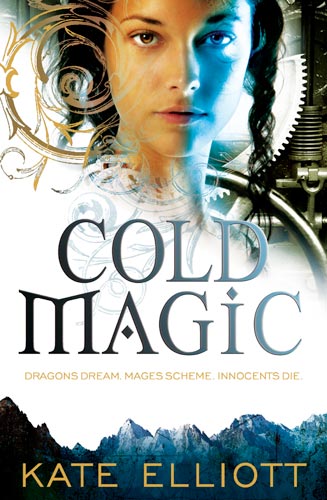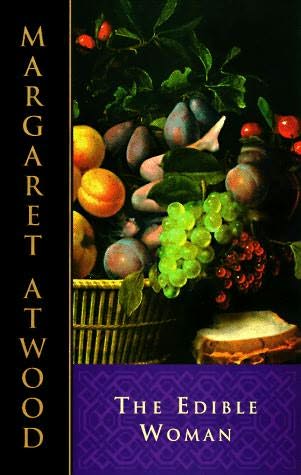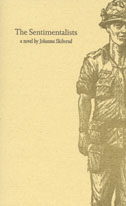Cast of Characters:
Jane Eyre - the heroine, an orphan, a governess
Mr. Rochester - Jane's employer and love interest - a harsh, unattractive man
Miss Ingram - a beautiful but shallow woman who Rochester pursues
Bertha Mason - Rochester's secret, insane wife
St. John Rivers - Jane's cousin - a strict, disciplined man
Rosamond Oliver - a rich woman in love with St. John
WARNING: This probably includes spoilers if you have not read the story and want the plot to remain a surprise.
How do people choose a marriage partner? The most prominent answers to this question change throughout time. In long ago eras of human history, people sought mates who displayed characteristics suggesting long life and viable offspring. In our current culture, people marry primarily for love, choosing a spouse for their preferred companionship. In the nineteenth century, marriages were influenced by many factors. The story of
Jane Eyre illustrates relationships and potential relationships built on status and money, on duty, and on love.
Today's society values work, and people who earn a living through a paying occupation are the norm. In contrast, in the stratified society of the Victorian era the necessity to provide for oneself through labour, instead having an income coming from the interest on an inheritance or from tenants renting land, lowered a family on the social scale. Marriage was regarded as a means of attaining wealth and respectability, and was particularly important for people of rank who were raised in wealthy households but who found themselves with little inheritance as they reached adulthood. This would often be the case for younger sons: to avoid splitting the family's wealth, it would be given intact to only the oldest son. If his younger brothers did not marry rich women, they would be destitute. This is Rochester's situation, and the impetus for his first marriage to Bertha Mason. His older brother was to receive the entire Rochester fortune. His father and brother arranged a marriage between Rochester and a rich woman in Jamaica, and it did not matter to them that this woman had a family history of insanity and was prone to it herself. Rochester did not know about his bride's character or propensities when he married her - in fact, he barely knew her at all. He reports that he never loved her, and his mercenary marriage essentially ruined his life. Further, when his older brother died, Rochester inherited his family's wealth, making Bertha's money and their marriage unnecessary. By that time, however, it was too late.
We see Jane's opinions of marriages for the sake of money or status as she reflects on the relationship between Rochester and Miss Ingram. It is clear that they are pursuing each other, but Jane is convinced that Rochester does not love Miss Ingram. "I saw that he was gong to marry her, for family, perhaps political reasons, because her rank and connexions suited him; I felt that he had not given her his love, and that her qualifications were ill adapted to win from him that treasure" (158-159). Jane considers marrying for anything other than love to be "commonplace" (160), and she feels so strongly about it that she later tells Rochester that "I would scorn such a union: therefore, I am better than you" (216). Jane doesn't understand why any person who has a choice would marry for any reason other than love. However, she realizes that those of a higher class are motivated by different pressures. "The longer I considered the position, education, &c., of the parties, the less I felt justified in judging and blaming either him or Miss Ingram, for acting in conformity to ideas and principles instilled into them, doubtless, from their childhood. All their class held these principles; I supposed, then, they had reasons for holding them such as I could not fathom" (160).
The actual situation between Rochester and Miss Ingram is different than what is represented. It truly is a relationship that lacks love, but Rochester does not intend for it to lead to marriage. He is acting interested in Miss Ingram merely to make Jane jealous. Rochester is essentially sarcastic when, disguised as the fortune teller, he tells Jane "No doubt... they will be a superlatively happy pair. He must love such a handsome, noble, witty, accomplished lady; and probably she loves him: or if not his person, at least his purse" (170-171). Rochester has learned the dangers of a marriage based on status instead of love. It becomes clear that Miss Ingram is only interested in Rochester's money when he spreads rumour that his fortune is smaller than what she expected, and she cools her interest in the relationship (217).
The relationship between Jane and Rochester is based on love and respect. Although they do not belong to the same social class or income bracket, they are able to carry on intelligent conversations and they admire each other's personalities. Rochester calls Jane his equal and his likeness as he proposes to her (217), and she continually lets the reader in on the secret of her love for Rochester. The story eventually concludes with Jane and Rochester's marriage and happy life together.
In the meantime, however, the story demonstrates that love is not always enough to build a successful relationship. Love must be tempered by reason. When we discover that Rochester is already married, it becomes apparent that a marriage between him and Jane would not be legally valid, and that if they were to stay together, Jane would essentially be Rochester's mistress. She believes that this would be wrong, but because she loves Rochester so deeply she faces a very difficult decision. Finally, she realizes that for the sake of her self respect she cannot stay with Rochester (270). Love was not enough when circumstances conspired against the couple.
Rosamond Oliver and St. John Rivers provide another example of two people who love each other but do not end up together. Miss Oliver's love for St. John is clear and uninhibited; St. John's feelings, on the other hand, are reluctant and tortured. He does admit that he loves Miss Oliver, but he refuses to pursue relationship because he considers it impractical. She does not fit with his future plans to be a missionary (318). It is clear that St. John is a character who places a sense of duty above all else.
St. John's sense of duty is even more apparent when he pursues Jane. Not only does he make his own relational decisions based on his calling, but when he recognizes someone who would be suited to the same lifestyle, he expects her to eagerly join him. St. John says to Jane, "God and nature intended you for a missionary's wife... A missionary's wife you must - shall be. You shall be mine: I claim you - not for my pleasure, but for my Sovereign's service" (343). When Jane exhorts St. John to find a wife he loves ("Seek one elsewhere than in me, St. John: seek one fitted to you"), he responds by referring to duty ("One fitted to my purpose, you mean - fitted to my vocation" [346]). Jane attempts turns down St. John's proposal. She is willing to accompany him to India as a missionary, but she will not go as his wife because it is clear to her that St. John does not love her, nor does she love him. St. John will not accept her refusal, however. As he understands it, his desires are the will of God. If someone does not cooperate with his plan, they are disobeying God. St John expresses these fears to Jane: "If you reject it, it is not me you deny, but God. Through my means, He opens to you a noble career; as my wife only can you enter upon it. Refuse to be my wife, and you limit yourself for ever to a track of selfish ease and barren obscurity. Tremble lest in that case you should be numbered with those who have denied the faith, and are worse than infidels!" (348). Jane is not persuaded, however. She will not marry out of sense of duty, even when she is threatened with divine disappointment.
Jane sees an alternative when marriage for love is not available: rather than settling for a love-less marriage, she prefers to remain single. She acknowledges "the fact that [she and St. John] did not love each other as man and wife should; and therefore it inferred we ought not to marry" (345). She says again later, "[St. John] has told me I am formed for labour - not for love: which is true no doubt. But, in my opinion, if I am not formed for love, it follows that I am not formed for marriage" (354). If she does not marry for love, she will not marry at all. St. John's prediction about Jane is wrong, however. Jane and Rochester are "formed" to love each other and to spend a happy life together.
Although most couples today marry for love, there are still contemporary examples of the other reasons behind choosing a spouse. A single mother, for instance, might marry an interested man who has a good job, not because she is madly in love with him but because he can provide for her and be a necessary role model for her children. Jane Eyre provides a timely discussion of the factors involved in choosing a person to marry by discussing love, money, and duty.
 Free as a Bird by Gina McMurchy-Barber is a book I impulse bought while in a cute rustic book cafe up in the small town of Rossland, B.C. after a two-hour hike up the side of a mountain. I had already placed myself on a book-buying ban from buying 27 new books at a used book sale one week earlier, and 4 other new books at a college in Vancouver, which I had just visited a couple of days ago. Nonetheless, this book caught my attention as I was browsing through the idyllic bookstore: first because this book was a finalist for the Govorner General's literary awards, second because that meant the book was written by a Canadian author, third because the book was small, and fourth because of the premise of the book as it was written on the back cover seemed really interesting.
Free as a Bird by Gina McMurchy-Barber is a book I impulse bought while in a cute rustic book cafe up in the small town of Rossland, B.C. after a two-hour hike up the side of a mountain. I had already placed myself on a book-buying ban from buying 27 new books at a used book sale one week earlier, and 4 other new books at a college in Vancouver, which I had just visited a couple of days ago. Nonetheless, this book caught my attention as I was browsing through the idyllic bookstore: first because this book was a finalist for the Govorner General's literary awards, second because that meant the book was written by a Canadian author, third because the book was small, and fourth because of the premise of the book as it was written on the back cover seemed really interesting.












